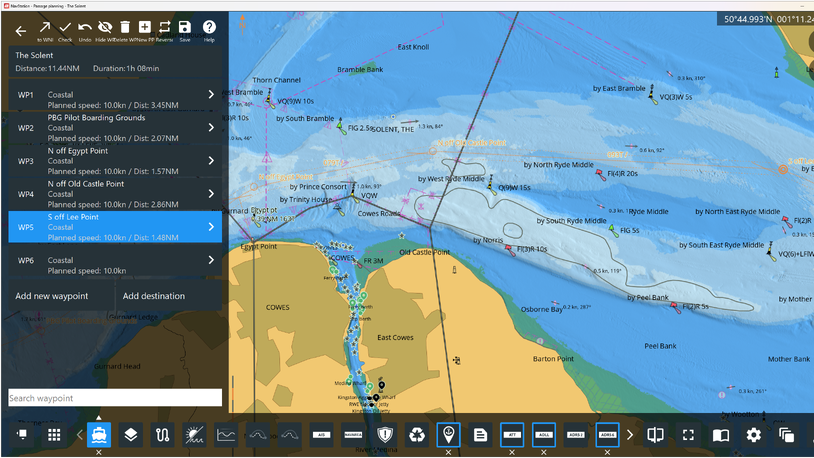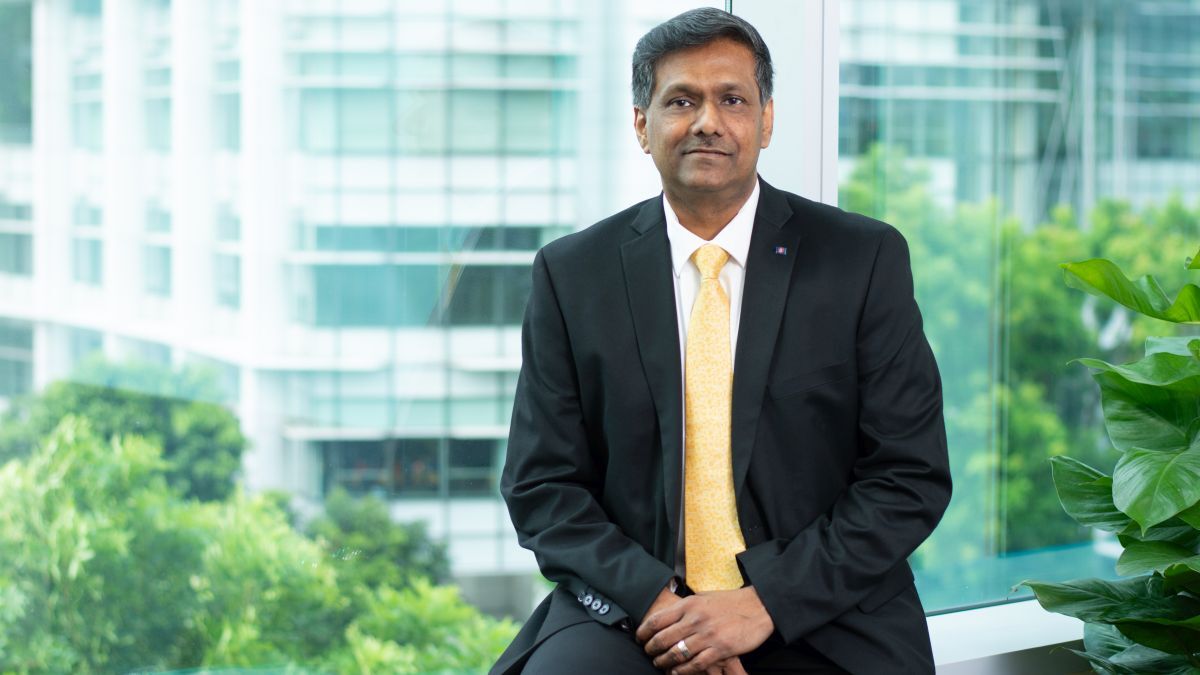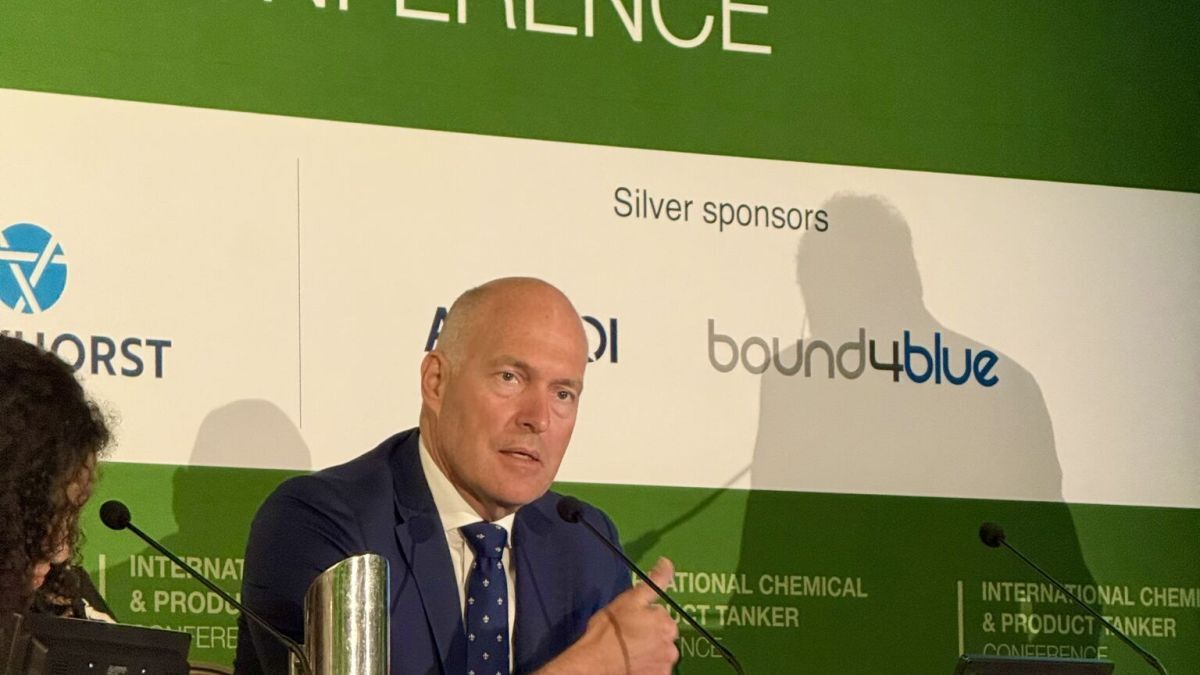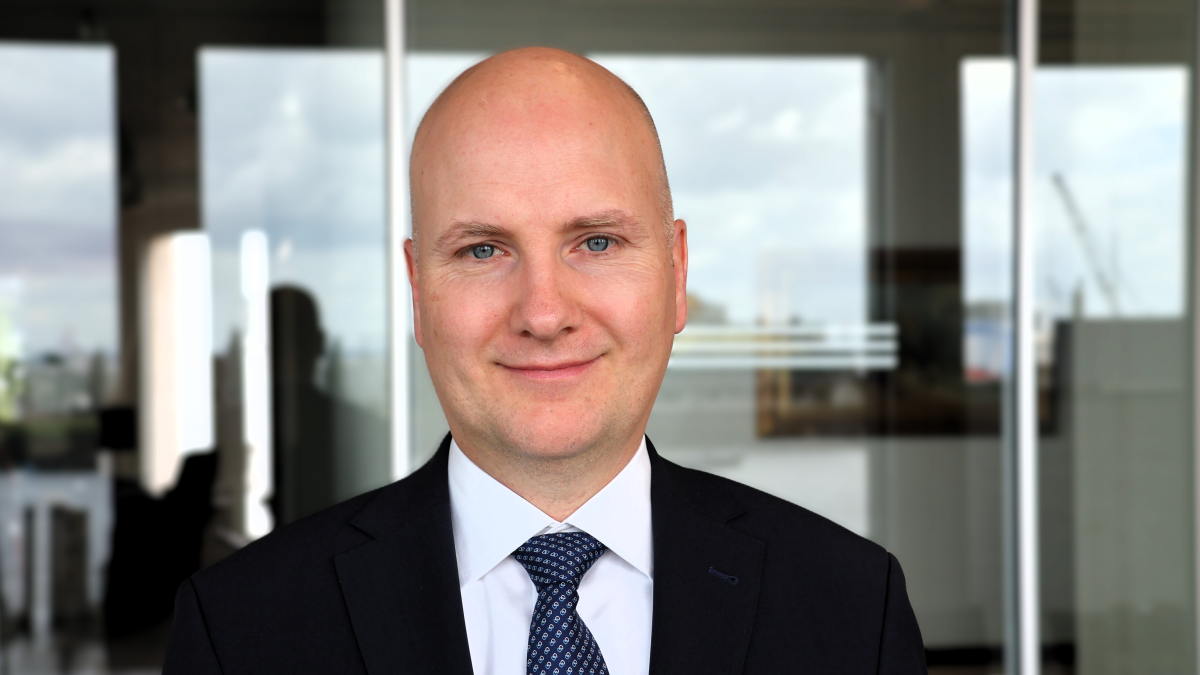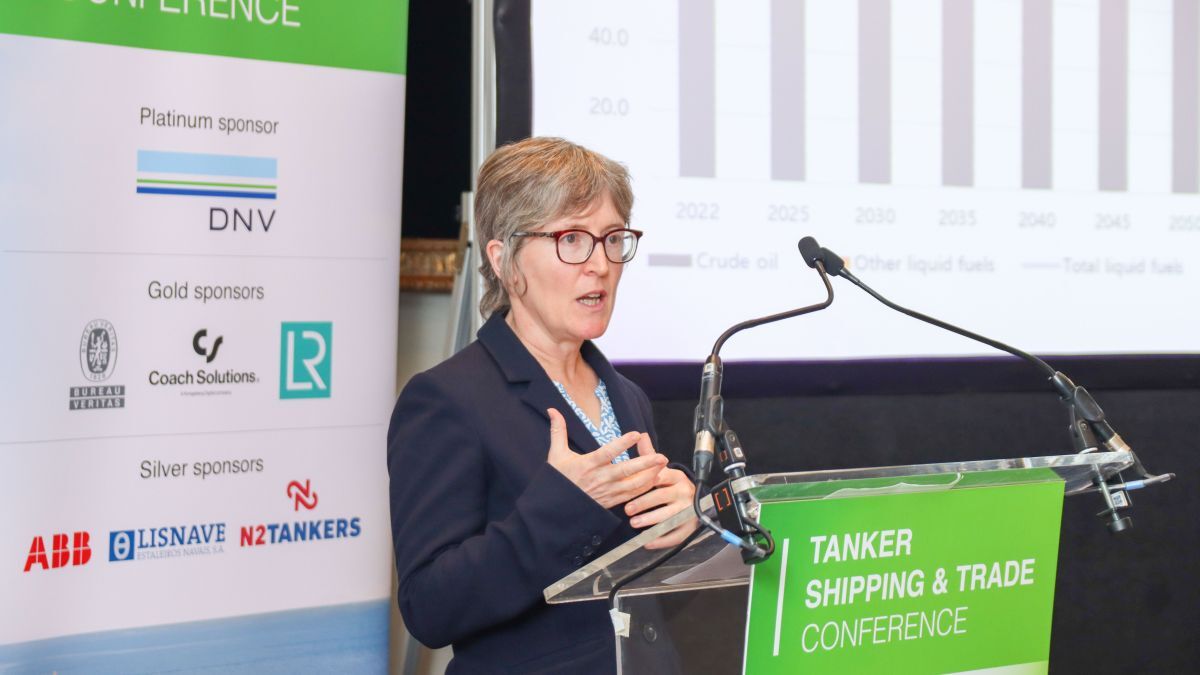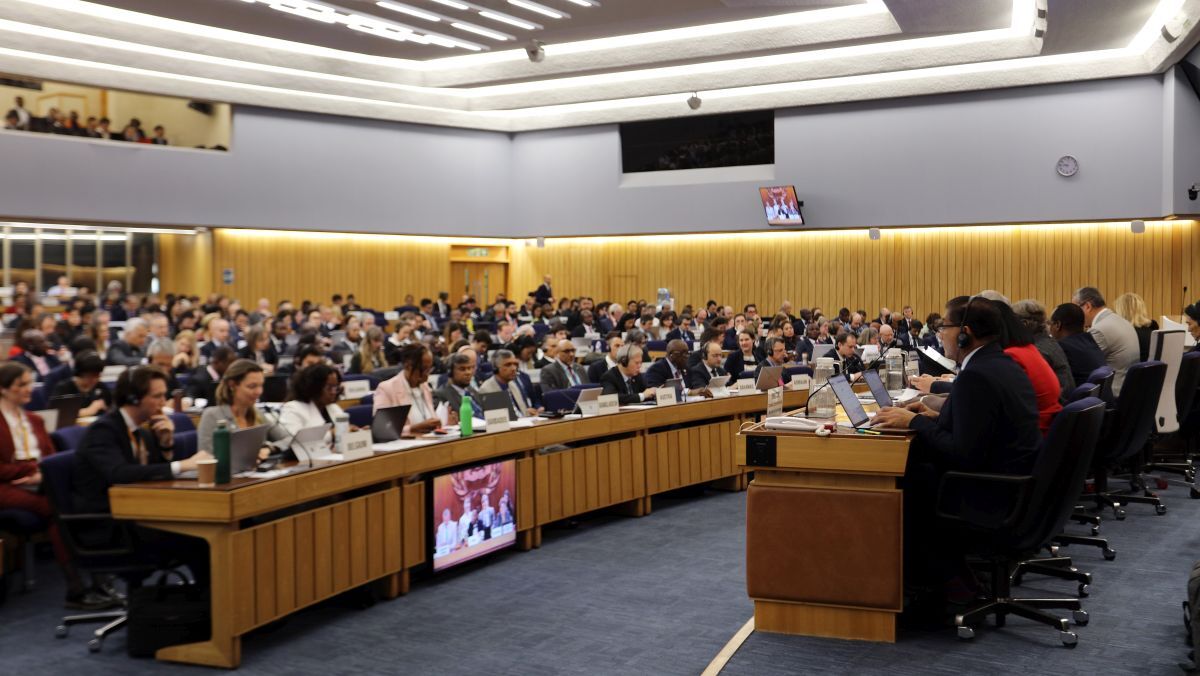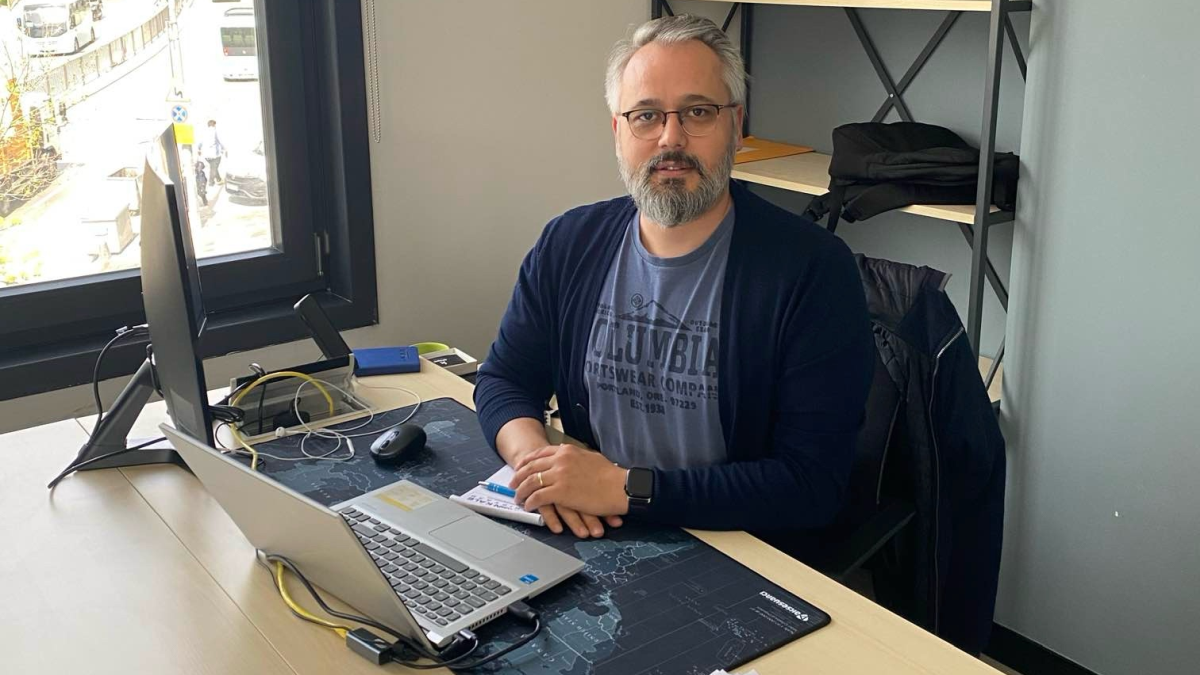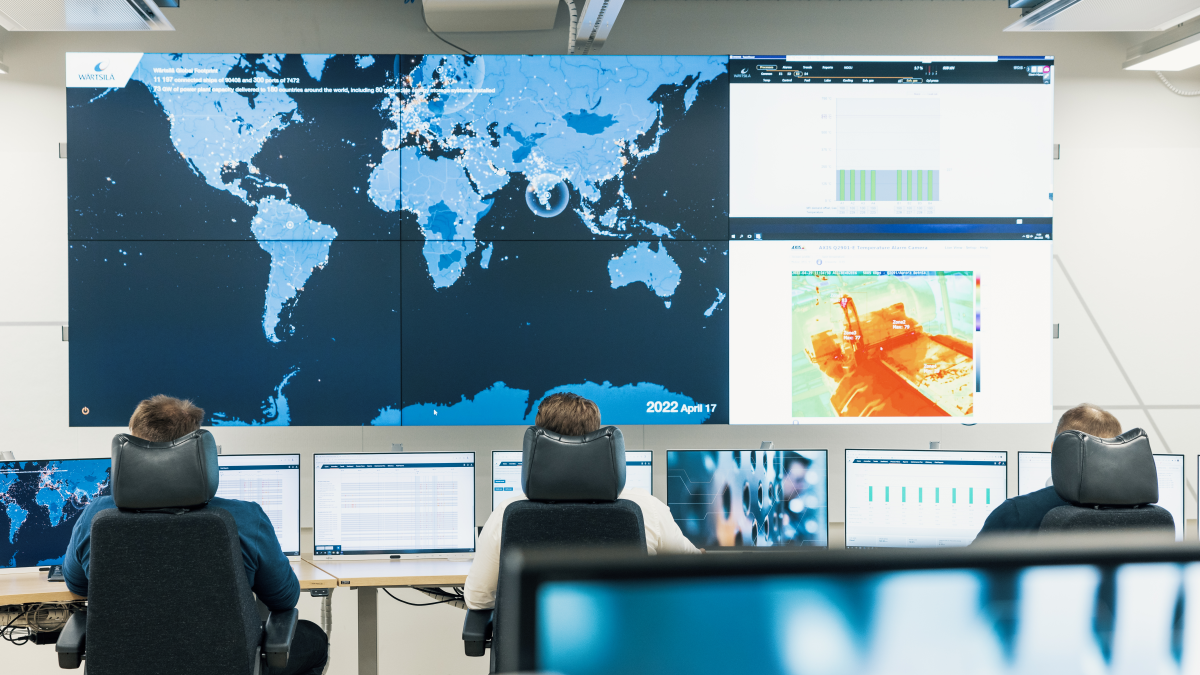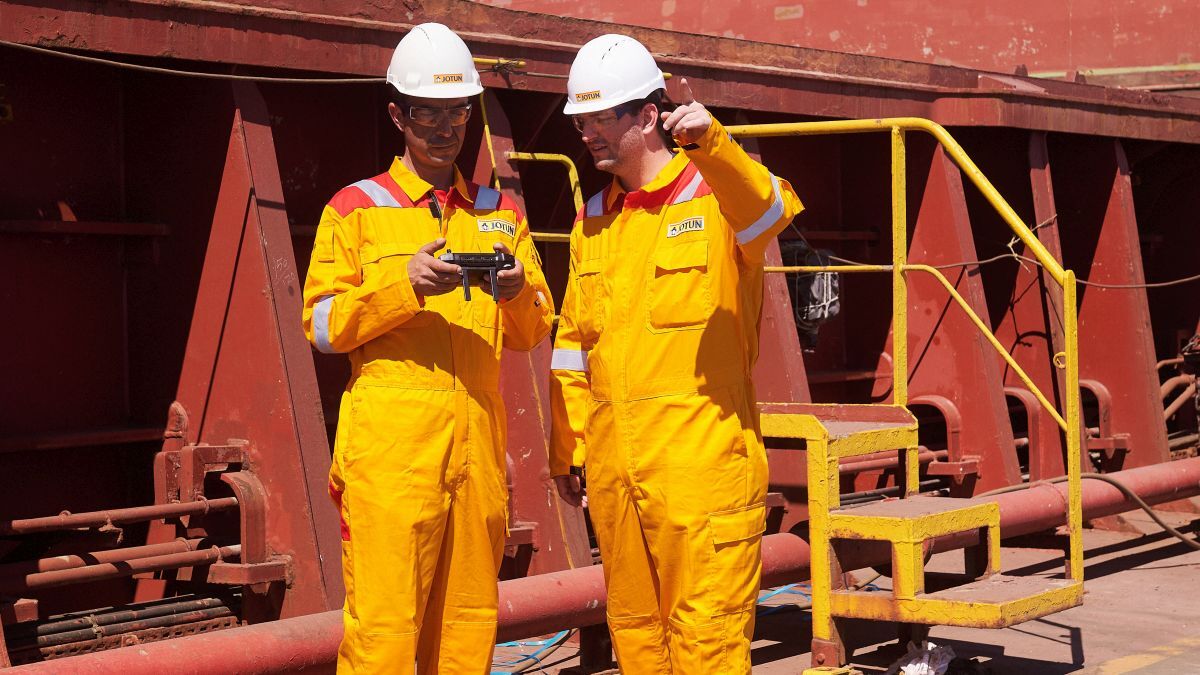Business Sectors
Events
Contents
Register to read more articles.
Paradigm shift in shipmanagement requires thought leadership
In an increasingly complex regulatory landscape, shipowners will need to collaborate more closely with shipmanagers that provide thought leadership, says (Singapore) managing director, Raymond Peter
A rapidly evolving regulatory regime, new fuels and technologies, crewing concerns and geopolitical instability are causing a paradigm shift in third-party shipmanagement, says a leading executive in the sector.
“Change is coming. Not just when it comes to technical, marine operations, or crewing expertise. We are looking at a different type of thought leadership moving forward and a leader who leads from the front,” says Bernhard Schulte Shipmanagement (Singapore) managing director, Raymond Peter.
Speaking to Singapore Solutions at his office in Singapore, Mr Peter says shipmanagers are no longer just taking over technical management of a ship. “Now we are helping owners understand the requirements, decipher the rules, monitor their emissions, and make them aware of regulations that are coming. And the number of regulations is growing day by day,” he says.
This regulatory shift is playing against a backdrop of growing geopolitical risks caused by instability in the Middle East and the ongoing Ukraine-Russia war, and security threats in Asia.
A veteran of shipmanagement, Mr Peter heads BSM (Singapore), part of the Schulte Group’s global network of shipmanagement companies that oversee about 670 ships trading in the tanker, LNG, gas, bulk, container, PCTC and specialised sectors such as cruise and offshore energy.
Staffing challenges
Mr Peter cites data from the recent Manning Annual Review and Forecast by shipping consultancy Drewry that indicates record-level shortages for officer supply. “There was a shortfall of 39,000 officers,” he says. These supply-demand imbalances are causing “real challenges for staffing both on board and shore, particularly with all the new ships coming out.”
He says more collaboration is needed between the owner, the manager, charterers, ports and terminals to tackle the complexities of the EU Emissions Trading System, FuelEU Maritime, MRV, other IMO regulations plus all other rising regulatory requirements. The shipping industry has faced significant challenges due to IMO’s carbon emissions-related policies, particularly with the introduction of the Energy Efficiency Existing Ship Index (EEXI), Carbon Intensity Indicator (CII), and greenhouse gas reduction targets. These regulations aim to reduce the industry’s carbon emissions by 40% by 2030 and achieve net zero by 2050, but they have led to operational and financial pressures on shipowners and stakeholders.

Crew training is a key concern
Mr Peter notes some of the challenges faced are higher operating costs, retrofitting vessels to comply with EEXI requirements, operational complexity and crew training requirements. “Crew training is a key concern as there is a huge gap with the current maritime academy and the expectations with alternative fuels and the modern equipment on board; asset depreciation, as older, less fuel-efficient vessels are depreciating faster as they are becoming non-compliant, leading to a surge in vessel scrapping or secondary use (eg floating storage); and charterers and market dynamics, where we see charterers are increasingly favouring vessels with better environmental ratings, reducing demand for non-compliant ships; and lastly, regulatory uncertainty where delays in clarity over future fuels (ammonia, hydrogen, methanol) and related infrastructure have left shipowners hesitant to invest in newbuilds or retrofits.”
Mr Peter says shipowners that fail to comply or don’t have a proper decarbonisation strategy face stiff financial penalties and reputational damage, and that is why the key is a technical manager who understands and knows how to navigate the upcoming regulations and is well positioned to manage the staffing challenges.
“For an owner to be successful, you need a good manager who has all the proper systems and processes in place to collect the data and manage the demands of the upcoming regulatory changes. We’ve invested in those systems over the last 10 years, and the amount of ship data coming through a shipmanager today is humungous,” says Mr Peter.
He also points to the importance of the human element in the process both ashore and on board, and retaining and training experienced personnel to address the increasing data management burden being placed on masters and junior officers.
Opex costs are also rising because of the geopolitical tensions and the recent threats by the rebel groups in Red Sea has tightened crew supply. “Everyone is rushing to India and the Philippines,” he says, driving up costs and competition. Rising national GDPs with better shore opportunities coupled with war-like tensions and the Covid crewing crisis have dissuaded many from seeking seafaring careers.
“The whole phase of shipmanagement is changing, and changing very fast. Smaller shipmanagers will struggle to stay afloat because it has become too costly to manage systems processes with this constant change and the frequent rise in regulatory requirements,” he says.
But Mr Peter believes what differentiates BSM (Singapore) from small shipmanagers is investment in a combination of the right people and technology, and the process. “A shipmanager has to take thought leadership into their whole process of providing service, with innovative systems, processes, data management and people.”
Sign up for Riviera’s series of technical and operational webinars and conferences:
- Register to attend by visiting our events page.
- Watch recordings from all of our webinars in the webinar library.
Related to this Story
Women in Maritime Today: Elin Saltkjel says no day working in maritime is dull
Events
Maritime Environmental Protection Webinar Week
Cyber & Vessel Security Webinar Week
The illusion of safety: what we're getting wrong about crews, tech, and fatigue
Responsible Ship Recycling Forum 2025
© 2024 Riviera Maritime Media Ltd.

